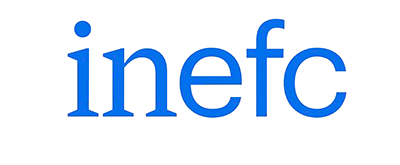Master’s Program in Sports Performance Direction*
*Master in Continuing Education
Testimonials
Lorem ipsum dolor sit amet, consectetur adipiscing elit. Ut elit tellus, luctus nec ullamcorper mattis, pulvinar dapibus leo.
Add Your Heading Text Here
Lorem ipsum dolor sit amet, consectetur adipiscing elit. Ut elit tellus, luctus nec ullamcorper mattis, pulvinar dapibus leo.
Add Your Heading Text Here
Lorem ipsum dolor sit amet, consectetur adipiscing elit. Ut elit tellus, luctus nec ullamcorper mattis, pulvinar dapibus leo.
Add Your Heading Text Here
Lorem ipsum dolor sit amet, consectetur adipiscing elit. Ut elit tellus, luctus nec ullamcorper mattis, pulvinar dapibus leo.
Add Your Heading Text Here
Lorem ipsum dolor sit amet, consectetur adipiscing elit. Ut elit tellus, luctus nec ullamcorper mattis, pulvinar dapibus leo.
Master´s Introduction by Francesc Cos
What you will get out of this master?
The master’s degree offered by the University of INEFC and SCS is structured as follows:
Theoretical Content:
190 hours conducted in the classroom.
Theoretical-Practical Content:
75 hours distributed among sessions in computer rooms, multipurpose rooms, and visits to high-performance centers and/or institutions.
Football SCS CSCE certification:
This certification will be independent of the approval of the master´s degree and will have a separate exam. The regulations to be certified by the SCS are detailed in the following link:
Practical Experience:
100 hours of hands-on practice in collaborating institutions and/or clubs.
Final Project:
A report or practice project must be submitted at the end of the master’s degree, detailing the activities carried out during the program.
In total, the master’s degree encompasses a blend of theoretical instruction, practical application, and real-world experience, culminating in a comprehensive project.
Who this master is for?
Target Audience
The Professional Master in Performance Direction is primarily designed for graduates in Physical Activity and Sport Sciences, as well as graduates in Health Sciences, including Physicians, Medical Doctors, and Physiotherapists.
Special Admission Criteria
In exceptional cases, professionals from other fields who possess a relevant profile and significant experience, qualifications, or sporting achievements may also be eligible for admission, provided they have the necessary knowledge and skills to benefit from the program.
Certification and Recognition
Upon completion of the master’s degree, participants will receive a qualification recognized by the National Institute of Physical Education (INEF) of Catalonia and the Strength & Conditioning Society (SCS).
Master Content
Sport Performance Director: integrative role and job description (4 ECTS = 15 h theoretical + 5 h practical)
Teaching Faculty:Francesc Cos, Francesco Cuzzolin, Igor Jukić
Coordination: Francesc Cos
Contents:
1. Integrative performance systems in sport
2. General and specific competencies for sport Performance Director
3. Job description of sport Performance Director
4. The role of sport Performance Director in sport organisation
Injury Management and Recovery Strategies (6 ECTS = 20 h theoretical + 10 h practical)
Teaching Faculty:Igor Setuain, Ricard Pruna, Daniel Martínez, Julio Calleja-González
Coordination: Igor Setuain
Contents:
1. Injury risk mitigation strategies.
2. Injury rehabilitation process: timelines, coordination between different departments.
3. Return-to-play.
4. Recovery strategies
5. The role of the Performance Director in injury management.
Leadership and Organisational Behaviour, and Applied Phycology Strategies (6 ECTS = 20 h theoretical + 10 h practical)
Teaching Faculty: – Mar Rovira, Anna Vilanova, Raquel Mirabet, Susana Soler
Coordination: Laura Nieto
Contents:
1. The determinants of group culture.
2. Managing the performance of individual subordinates.
3. Establishing productive relationships with peers and seniors over whom the manager has no formal authority.
4. Develop a vision of the future.
5. Align the organization behind that vision.
6. Motivate people to achieve the vision.
7. Design effective organizations and change them to achieve superior performance.
8. Human resources management.
9. Safeguarding athletes from harassment and abuse
10. The importance of psychological factors in team-sports performance.
11. Sports psychologist: role in the coaching staff.
13. The role of the Performance Director in the Sports Psychology area.
Coaching and Communication (4 ECTS = 15 h theoretical + 5 h practical)
Teaching Faculty: Xesco Espar, Irina Zelenkova, Pascual Tayot
Coordination: Irina Zelenkova
Contents:
1. Communicating with the players.
2. Communicating with the coaching staff.
3. Multidisciplinary approach to sports performance.
4. How to manage multicultural players/athletes.
5. Intra e inter-problems.
6. Communicating with parents/tutors.
7. Managing multiculturalism in high performance.
Long-term Planning (6 ECTS = 20 h theoretical + 10 h practical)
Teaching Faculty:Avery Faigenbaum, Urs Granacher, Tomás T. Freitas, Kostas Spyrou
Coordination: Tomás T. Freitas
Contents:
Unit 5 of the master’s program covers the essentials of pediatric exercise science, including the WHO PA physical activity recommendations, the impact of secular declines in physical fitness, and the rise of childhood obesity. It explores topics such as pediatric dynapenia, the physical inactivity triad, and debunks myths surrounding youth resistance training, highlighting its often-overlooked benefits. The unit delves into fundamental movement skill development, addressing the “proficiency barrier” and the “strength barrier” that differentiate fit and unfit youth. Additionally, it introduces strength and conditioning basics and integrative neuromuscular training to support brain development in early stages. The content includes sports development models such as LTAD (Long-Term Athlete Development), the 5S model, and the Composite Youth Physical Development Model, as well as distinctions between chronological and biological age and methods for assessing biological age. Topics on periodization and the effects of strength and neuromuscular training on injury prevention in young athletes are also covered. Finally, it emphasizes the importance of identity and culture in sports clubs, the role of performance directors versus coaches and players in shaping culture, the establishment of long-term goals and ethical standards, and case studies of organizations with successful long-term athletic development programs.
Data Management for Sports Governance (4 ECTS = 15 h theoretical + 5 h practical)
Teaching Faculty: Xavi Schelling, Martí Casals, Francesc Solanellas
Coordination: Laura Nieto
Contents:
1. Articulate changes, trends and implications using analytics tools that can be ethically addressed across data platforms.2. Design and implement strategies for analyzing data using appropriate methods, tools and datasets.
3. Analyze data to create actionable information, and use it to establish priorities, make decisions and solve problems aligning with the ethics, needs and values of individuals, communities and stakeholders.
4. Display and explain the results of analytics projects using effective written, graphic and verbal tools and techniques.
5. Use advanced data processing tools incorporating regulatory, data governance, master data management, data profiling, parallel and distributed processing best practices.
6. Manage data analytics projects and teams throughout the analytics lifecycle.
7. Interpret and translate sports performance data for targeted consumers.
Advanced statistical application in decision making in performance departments (6 ECTS = 20 h theoretical + 10 h practical)
Teaching Faculty: Xavi Schelling, David Fombella, Jaime Sampaio, Martí Casal
Coordination: David Fombella
Contents:
1. What is really statistics.
2. Type of data, variables and C Speak
3. What should we know before starting analysis?
4. Big data: the future in team-sports performance?
5. Exposure to emerging technologies like generative AI and foundational concepts within ethical AI, like algorithmic transparency, fairness, privacy, and bias.
6. Applied statistics: analysing data in a high-performance setting.
7. Visualization and Technology.
8. Decision making based on data analysis.
9. Ability to set up and manage data science teams, governance policies, and analytics infrastructure.
10. Expertise to prioritize and sequence data science projects based on their feasibility and impact.
11. Skills to critically evaluate data science methodologies, results, and recommendations.
12. Fluency in the vocabulary and logic used by data scientists to drive key organizational decisions.
13. The role of the Performance Director in Data Analysis and management.
Testing, Performance Assessment and Movement Analysis (6 ECTS = 20 h theoretical + 10 h practical)
Teaching Faculty: Pedro E. Alcaraz, Daniel Cohen, Anthony J. Blazevich, Luis Suarez Arrones
Coordination: Pedro E. Alcaraz
Contents:
1. Testing and performance assessment: why, when and how?
2. Assessing the different physical qualities in a team-sports setting.
3. Biomechanics and movement analysis.
4. The role of the Performance Director in Testing and Performance assessment.
Sports Medicine (4 ECTS = 15 h theoretical + 5 h practical)
Teaching Faculty: Ramon Cugat, Antonio Tramullas, Iñigo Sanmillán
Coordination: Elena Marín
Contents:
1. Principles of Sports Medicine.
2. Communicating with the medical staff.
3. The role of the Performance Director in the Sports Medicine area.
Skill acquisition, Technical, and Tactical Preparation and Integration (4 ECTS = 15 h theoretical + 5 h practical)
Teaching Faculty: Jaime Sampaio, Igor Jukić, Luis Suarez Arrones
Coordination: Franc García
Contents:
1. Skill acquisition, Technical, and Tactical Preparation and Integration Basic Concepts
2. Skill acquisition, Technical, and Tactical Preparation as a Complex System
3. Skill acquisition, Technical, and Tactical Preparation: integration with the strength and conditioning content
4. The role of the Performance Director in Skill acquisition, Technical, and Tactical Preparation
Sports Nutrition (4 ECTS = 15 h theoretical + 5 h practical)
Teaching Faculty: Mireia Porta, Toscana Viar, Nicolás Terrados
Coordination: Mireia Porta
Contents:
1. Energetic requirement in different team-sports.
2. Nutrition for the high performance team-sport athlete.
3. Ergogenic aids.
4. The role of the Performance Director in sports nutrition.
Practicum (6 ECTS = 100 h internship + 50 h internship report)
Coordination: INEFC
Contents:
Practical experience in a real-world context.
Schedule of face-to-face sessions: Fridays and Saturdays
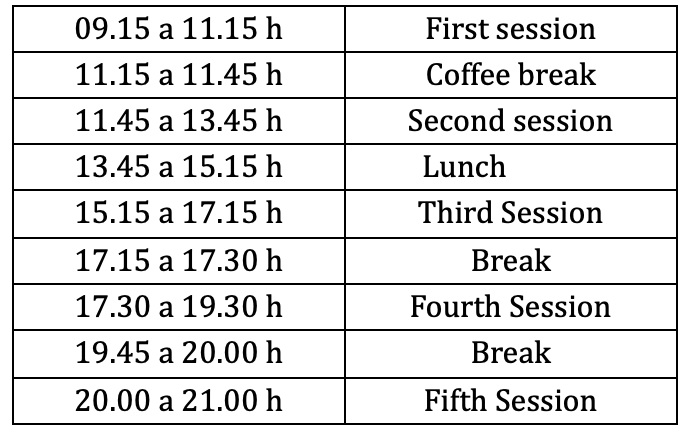
Academic calendar:
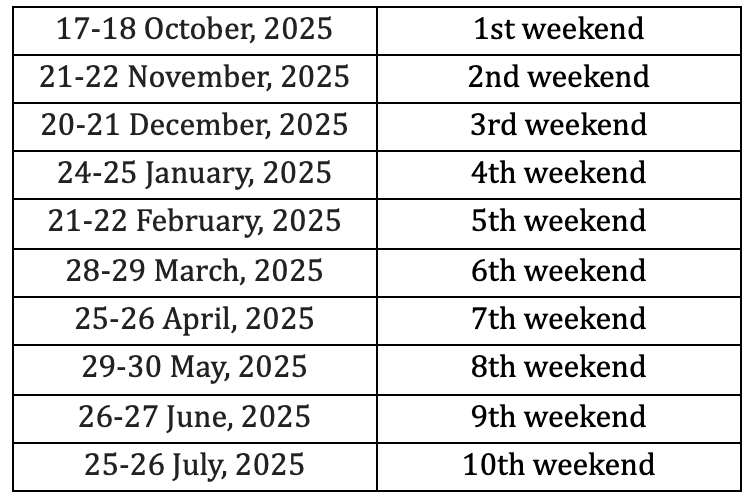
Become an expert in the field.
Master all the relevant aspects to become a professional capable of developing the maximum potential of your team by the hand of the most important figures in the field.
Teaching Faculty
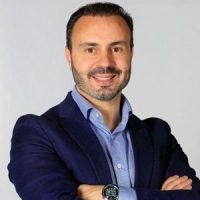
Pedro E. Alcaraz
Full Professor in Sport Sciences.
UCAM Research Center for High Performance Sport.
Performance Specialist for Sports Organizations.
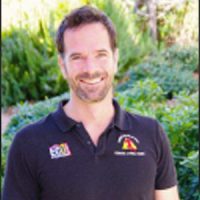
Anthony Blazevich
Professor of Biomechanics, Edith Cowan University, Australia.
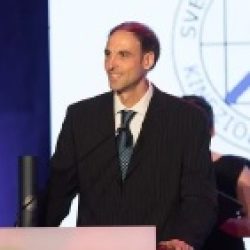
Julio Calleja González
Full Professor at the University of the Basque Country, Vitoria, Spain.
Honorary Professor at Faculty of Kinesiology, Zagreb, Croatia.
Professor at Spanish Olympic Committee, Madrid, Spain.
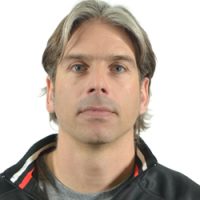
Toni Caparrós
Toni Caparrós holds a Ph.D. in Physical Activity and Sports Science from the University of Barcelona, an MBA from the University of Barcelona, a Master’s in Information Society and Knowledge from the Open University of Catalonia, and a Master’s in High Performance Sports from the Autonomous University of Madrid.
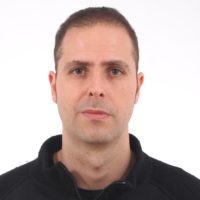
Marti Casals
Associate professor in biostatistics in the Faculty of Medicine and Health Sciences and researcher of the Physical Activity and Sport Studies Centre (CEEAF) at the University of Vic Central University of Catalonia (UVic).
Marti collaborate as an sports statistician at FC Barcelona and as an external biostatistician and Basketball Analyst at Memphis Grizzlies. He is Phd in Statistics and his primary fields of expertise are: Sports Biostatistics, Sports Analytics and Teaching Statistical Science.
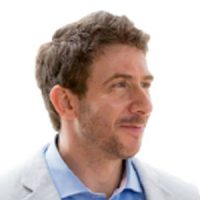
Daniel D. Cohen
Sports Science Center (CCD), Colombian Ministry of Sport (Mindeporte), Bogotá, Colombia.
Masira Research Institute, University of Santander (UDES), Bucaramanga, Colombia.
Performance Specialist for Sports Organizations.
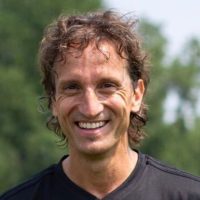
Francesc Cos
Sports Scientist at Manchester City
Doctor of Sports Science, Researcher at Universitat de Barcelona
Former Fitness Coach at FC Barcelona and former Performance Manager at New York City
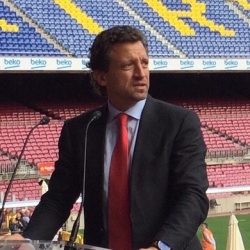
Miguel Ángel Cos
Miquel Àngel Cos Morera is a leading physiotherapist and osteopath with an extensive career in the field of sport.
He graduated from the Autonomous University of Barcelona and has been working since 1988 at the Barcelona High Performance Centre as physiotherapist for the national athletics team. He is also coordinator of the Department of Physiotherapy and Sports Rehabilitation at the CAR. He has directed the Master’s Degree in Sports Physiotherapy at the Universitat Autònoma de Barcelona and is a lecturer in prestigious training courses in Spain, France, Italy and Latin America.
He has worked with F.C. Barcelona and R.C. Deportivo de La Coruña, and has been a member of the Spanish Olympic Committee at several Olympic Games.
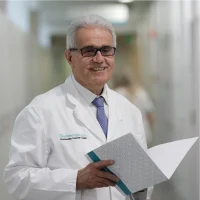
Ramón Cugat
Dr. Ramón Cugat is a physician specialized in Traumatology, Arthroscopy, and Orthopedic Surgery. He is one of the pioneers of Arthroscopic Surgery in Spain and the Founder of the Spanish Arthroscopy Association (AEA).
For over a decade, he has been a pioneer, along with his team, in the research and use of Platelet-Rich Plasma (PRP), achieving excellent results that accelerate the healing of injuries.
Currently, there are several research groups led by Dr. Cugat that are exploring and refining the application of Stem Cells in joints with cartilage injuries, including arthritic joints as well as similar injuries in athletes.
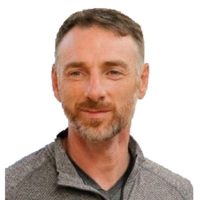
Francesco Cuzzolin
Head of Performance at Olimpia EA7 Emporio Armani Milano.
Experienced Team Coach with a demonstrated history of working in the sports industry. Skilled in Athletic Training, Agility, Athletics, Weight Training, and Performance Enhancement.
Former S&C Coach for Italian National Basketball Team
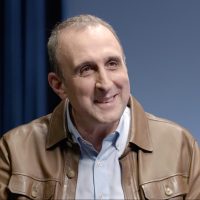
Xesco Espar
Expert in High Performance
Founder at Academia de Entrenadores Xesco Espar
Former Physical Preparation Coordinator at FC Barcelona and Professor of Universitat de Barcelona
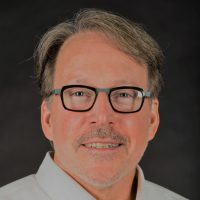
Avery Faigenbaum
Full Time Professor at College of New Jersey, Department of Kinesiology and Exercise Science
Co-author of over 250 peer-reviewed publications, 50 book chapters and 10 books including Essentials of Youth Fitness, Strength and Power for Young Athletes, and Progressive Plyometrics for Kids
Fellow of the American College of Sports Medicine, the National Strength and Conditioning Association and the National Academy of Kinesiology.
Boyd Epley Lifetime Achievement Award Winner from the National Strength and Conditioning Association in 2017
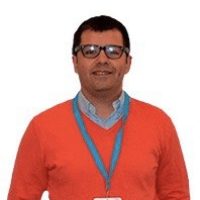
David Fombella
Consultant in the BI area in Stratebi, works on tasks of data integration, creation of multidimensional structures and visualization through dashboards. Realization of predictive projects with R, Python for Machine Learning processes (Classification and Regression).
Specialized in training in Traditional BI, Power BI, Big Data and Machine Learning
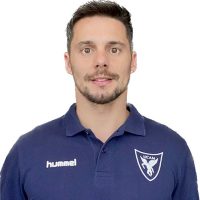
Tomás T. Freitas
UCAM Research Center for High Performance Sport.
UCAM Club de Baloncesto.
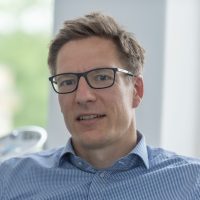
Urs Granacher
Full professor and head of Exercise and Human Movement Science, Department of Sport and Sport Science, University of Freiburg, Germany
Chairman of the PotAS-commission to reform the German elite sports system
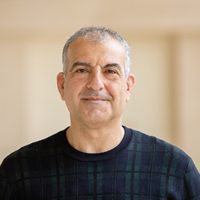
Xavier Iglesias
Xavier Iglesias’s career in fencing is distinguished by both his extensive involvement as an athlete and his significant contributions as a coach and administrator. Beginning his fencing journey at a young age, Iglesias has achieved notable success, including winning national championships and competing internationally. His expertise as a fencing master is underscored by his role as a National Level 3 Coach and an international referee for all three fencing weapons.
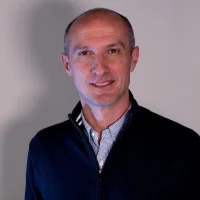
Igor Jukic
High Performance Sport Center (Croatian Olympic Committee).
Faculty of Kinesiology, University of Zagreb.
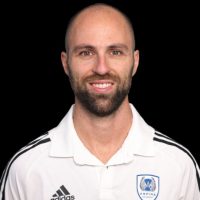
Daniel Martinez Silvan
Head Physiotherapist at Aspire Academy, Aspetar Orthopedic and Sports Medicine Hospital of Qatar. Former Team physiotherapist for U20 Qatar National Team at the World Championships and Head of Physiotherapy Department at Clinica Traumatologia, Valladolid. Daniel Martinez holds a Bachelor Degree in physiotherapy in University of Salamanca, as well as Master’s Degree in Sports Performance in Universidad Autonoma de Madrid in collaboration with Spanish Olympic Committee.
He specializes in sports physiotherapy and high performance, as well as in youth sports injuries and development
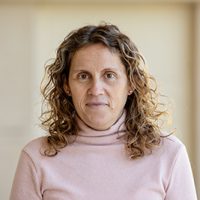
Raquel Mirabet
Head of the Management Department at INEFC Barcelona.
Focused on the field of Legislation and Sport Management, having developed several legal opinions related to both the proposed new Law of Physical Activity and Sport, as well as particular issues related to the Management of sports facilities.
Raquel also collaborated in the elaboration of the Code of Ethics of the profession of the COLEF Council.
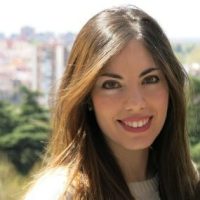
Laura Nieto Torrejon
Academic coordinator of Master’s in Direction and Management of Sports Entities in Universidad Catolica de San Antonio Murcia
Docent and researcher in UCAM
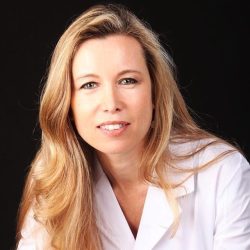
Mireia Porta Oliva
Nutritionist at FC Barcelona and Spanish National Hockey Federation
Associate Professor at Universitat Autonoma de Barcelona
Former Nutritionist at Tottenham Spurs Football Club
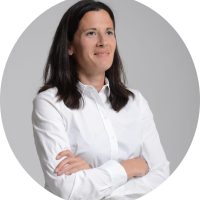
Mar Rovira
Mar is a professor in Sports Psychology at Tecnocampus-Pompeu Fabra University (Spain). As a Sports Psychologist Mar worked with countless clubs, including F.C. Barcelona and R.C.D.Espanyol among others. As a consultant, she is being helping national and regional sports federations.
She has worked for more than 10 years with top professional athletes and coaches from basketball, soccer, MotoGP, tennis, swimming, padel and others. She is member of the Elpa’s Performance Advisory Board.
Mar is founder of Themoove, company that help players in their retirement transition.
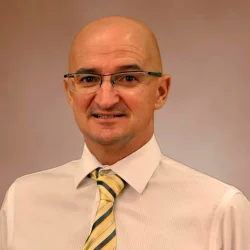
Iñigo San Millán
Iñigo San Millán, a leading sports physiologist from Alava, is the head of the High Performance Department of Athletic Club.
He previously served as the Director of Performance for the UAE Team Emirates, where he optimized the performance of elite cyclists, including Tour de France winner Tadej Pogačar. San Millán has over 25 years of experience with elite athletes and clubs, holds a Ph.D. in physiology from UPV-EHU, and a sports medicine degree from the University of Colorado.
Known for creating the first metabolic monitoring platform for athletes, he will now focus on maximizing the performance of Athletic Club’s football players in both senior and youth teams
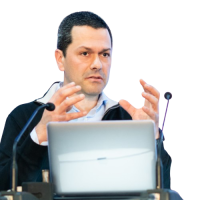
Jaime Sampaio
Pro-Rector for Infrastructures and Scientific Projects at the University of Trás-os-Montes e Alto Douro, Portugal
Head of the CreativeLab at the Research Centre for Sport Sciences, Health and Human Development (CIDESD-UTAD).
Head of a performance analysis team
Editor for Journal of Sports Sciences and Research Quarterly for Exercise and Sport
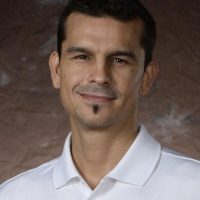
Xavi Schelling
Director at Spurs Sports & Entertainment, San Antonio, TX
Former Fitness Coach at Basquet Manresa SAD and CB Sant Josep de Badalona
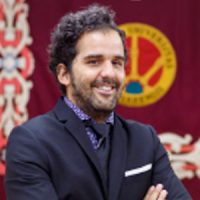
Igor Setuain
UPNA Associate Professor.
TDN clinical Director.
Professional Football Injury Consultant.
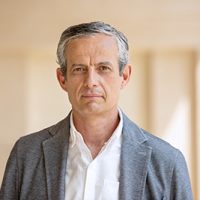
Francesc Solanellas
Sports Management Consultant and Professor at INEFC University of Barcelona.
Consultant and Mentor at UEFA
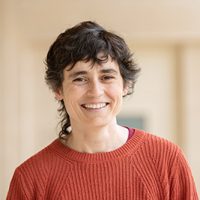
Susana Soler
Professor of Theory and History of Physical Education and Sport, INEFC
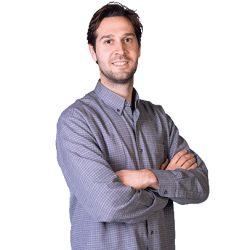
Konstantinos Spyrou
UCAM – Department of Physical Activity and Sports Science
PhD in Sports Science; MSc High Performance Sports; CSCS.
Lecturer in: Master’s Degree in High Performance Sports: Strength and Physical Conditioning; Degree in Physical Activity and Sport Sciences; Master’s Degree in Sports Physiotherapy
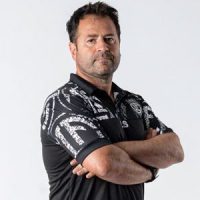
Luis Suárez Arrones
Head of Performance at FC Lugano (former Fitness Coach at FC Basel, ACF Fiorentina, Tianjin Quanjian, Qatar National Team-Aspire).
Professor at Pablo de Olavide University.
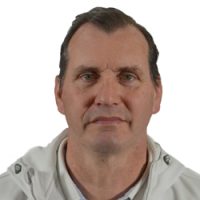
Pascal Tayot
Olympic medalist in the Judo competition at the 1992 Barcelona Olympic Games, winning the silver medal.
Professor at INEFC in the Performance Department.
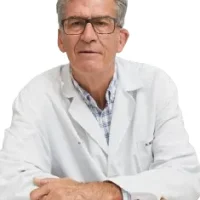
Nicolás Terrados
Doctor of Medicine and Surgery Professor at the University of Oviedo Master’s in High Performance Sports and specialist in Sports Medicine.
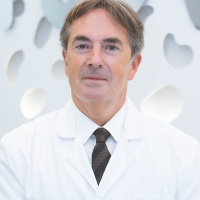
Antonio Tramullas
Medical doctor with a degree in Medicine and Surgery from the University of Barcelona, he specializes in Sports Medicine from London University. With over 20 years of experience in sports, he has been part of the Medical Services of FC Barcelona, serving as the team physician for the football and basketball first teams (1999-2012).
He has also served as the team physician for Al Sadd SC in Doha, Qatar (2019-2020) and Sydney FC in Australia (2020-2021). Notably, he was the Medical Director at one of the world’s most prestigious high-performance centers, the Aspire Academy Sports Medicine Center, Aspetar Hospital, Doha, Qatar (2013-2019).
Medical Director Aspire Academy Sports Medicine Center, Doha (Qatar)
Team Physician at Al Sadd S.C, in Qatar Stars League.
Team physician Sydney F.C.

Toscana Viar
Sports nutritionist at Spanish National Team & Athletic Club Bilbao
Founder of Health Company – company which helps to implement healthy lifestyle habits in day to day life
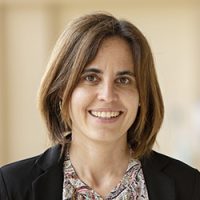
Anna Vilanova
Anna Vilanova holds a PhD from the University of Barcelona and a degree in Physical Activity and Sport Sciences from INEFC-Barcelona. She has completed a Master in Sociology of Sport at the University of Leicester, England. In the professional field she has worked as coordinator of the Observatori Català de l’Esport and in the Gender Cabinet of the Secretaria General de l’Esport.
She has organized the conference on “Good gender practices in sport” at the Consell Català de l’Esport and in the framework of the Universal Forum of Cultures she was part of the technical secretariat of the dialogue “Sport, universal dialogue”, among others.
She is Secretary General of the European Association for Sociology of Sport (eass) and of the Grup d’Investigació Social i Educativa en Activitat Física i Esport (GISEAFE) of INEFC.
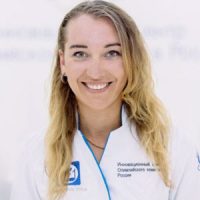
Irina Zelenkova
Irina Zelenkova, MD, PhD, sport medical doctor, researcher specialising in altitude training. She has worked in the field of sports performance for over 10 years helping athletes to reach their true potential.
Partners
FAQs
Who is the Master’s in Performance Direction aimed at?
The Professional Master in Performance Direction is aimed at Graduates in Physical Activity and Sport Sciences and graduates in Health Sciences (Physicians/Medical Doctors, Physiotherapists, etc.).
Exceptionally, professionals with other qualifications who, given their profile and experience, titles and/or sporting merits, have the necessary knowledge and skills to make appropriate use of it will be able to access it.
At the end of the master’s degree, a qualification recognized by the INEF of Catalonia and the SCS will be obtained.
What are the admission criteria?
The admission process is based on:
- Academic qualifications.
- Professional experience (CV).
- A motivational letter.
- An interview, if deemed necessary.
The maximum number of places per edition is 30.
What is the duration of the Master’s program?
The master’s program runs for one academic year, from September to July. The first edition starts in September 2025 and ends in July 2026. The second edition of the master’s degree will start in September 2026 and end in July 2027.
What is the total cost of the Master’s program?
The total fee for the program is 9,900 euros. This includes meals, teaching materials, a set of sports clothes, and coffee breaks. For full payment in one instalment, a 15% discount is applied.
What payment methods are available?
Students can choose between three payment methods:
- Single payment: Students pay 1,000 euros to secure their seat and then a single payment of 7,415 euros, receiving a 15% discount.
Deadline to make the one-time payment and get the 15% discount is May 31st.
- Instalment payments: Students who pay in installments will have a 0% discount, with the final price being 9,900 euros: 3,000 euros at registration (June 2025), 3,500 euros at the end of the first semester (October 2025), and 2,400 euros at the beginning of the third semester (February 2026).
- Discounted payment: SCS or INEFC employees receive a 50% discount, bringing the total cost to 4,950 euros.
When enrolling, students must pay a deposit of 1,000 € of the final amount of their enrollment to secure their seat. In case of not being admitted this fee will be returned.
Are there any scholarships available?
Yes, INEFC offers two full scholarships. However, beneficiaries will need to pay 200 euros in management fees and cover the cost of the official degree.
Where are the classes held?
The master’s program takes place at the INEFC facilities in Barcelona, Spain.
What is the format of the program?
The program uses a blended learning format with ten weekend sessions over ten months. Each session combines face-to-face classes with online and hybrid (face-to-face or streaming) options. Students must attend at least 80% of the sessions to obtain the degree.
What does the academic plan include?
The master’s consists of 190 hours of theoretical classroom content, 75 hours of theoretical-practical sessions in computer rooms, multipurpose rooms and visits to centers and/or high performance institutions, and 12 hours of assessment. Finally, the master’s degree will include 100 hours of practice in collaborating institutions and/or clubs. Additionally, at the end of the master’s degree, a report/practice project must be submitted with the activities carried out.
Who teaches the modules?
The modules are led by renowned experts in sports performance, each specializing in their respective fields. In the program section, you can find detailed information on the instructors for each module. Each module covers a specific area of expertise, such as injury management, leadership, data analysis, and sports medicine.
What certification will I receive upon completion?
Upon completing the program, students will receive a master’s degree recognized by the INEFC of Catalonia and the SCS. Additionally, students can choose between a football certification through the SCS CSCE, which requires passing a separate exam. The regulations to be certified by the SCS are detailed in the following link: conditioning-expert-football-first-level/
How do I apply for the master’s program?
Interested individuals must apply through the official website once the admission process opens. From August 1, 2025, a list of admitted people will be published, and they will be notified personally of the steps they must follow to formalize the registration.
What does the schedule look like?
Classes are held on Fridays and Saturdays, with a daily schedule that includes five sessions from 9:15 AM to 9:00 PM. Each session lasts two hours, with breaks for coffee and lunch.
Is the program compatible with a full-time job?
Yes, the program is designed to be compatible with professional commitments. The weekend-based sessions and online options allow students to balance work with their studies. The teaching load will be distributed in ten sessions over ten months. The sessions will take place during one weekend of each month, and each of them will last twenty hours. The format of the master’s degree will be mixed, combining the mandatory face-to-face sessions with online sessions and mixed sessions (to choose: face-to-face or by streaming).
Contact: info@scs.academy

